Or search by topic
Number and algebra
Geometry and measure
Probability and statistics
Working mathematically
Advanced mathematics
For younger learners
EYFS Thinking About: Obstacle Courses
The Nursery teacher from Corrie Primary and Nursery School in Denton (Tameside) helped to develop our Obstacle Course activity. This is what she told us about the way she introduced the ideas her in her setting and the children's responses:
I started by setting up a short course and the children rushed to it:
I then gave verbal directions, so the children moved through one at a time, then added gestures and encouraged children to talk about/chant their movements:
I hadn't done this before for moving through a physical space, and it is something I will definitely use from now on because it helped them link actions to words.
They gained confidence chanting as they moved. One child substituted over for across:
Children were problem solving and held the wooden frame for each other (without me suggesting it).
We then had a chat about what children knew about maps during a group session:
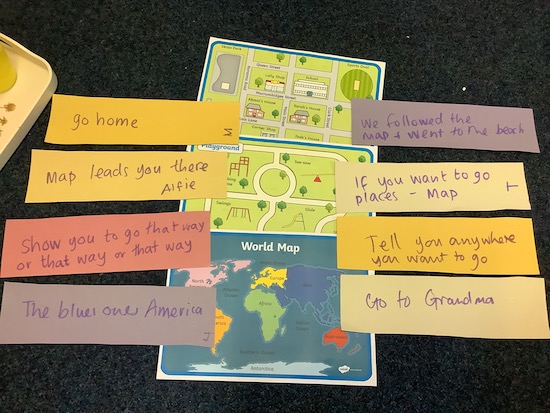
"We followed a map when we went to the beach."
"When you want to go somewhere it leads you there."
"The blue one’s America." (Actually it’s Asia)
The next time we were outdoors children drew circle map pathways (like stepping stones) to follow.
Tahani made her own 'finish x' and 'start' symbols:
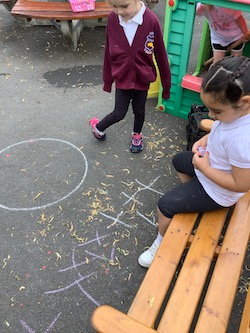
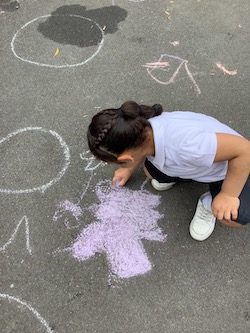
Three boys reversed the cardboard box tunnels we had been using to make 'bedrooms':
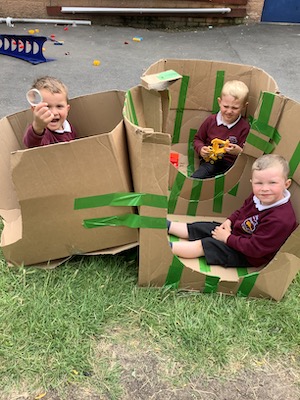
The following day I gave children arrows to follow. Charlotte and Max were really interested in them:
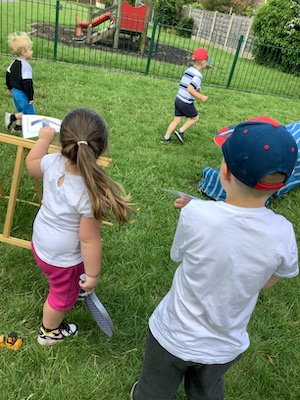
We then revisited the obstacle course, this time with some directional arrows:
After a while they began to repurpose the equipment, using their own ideas:
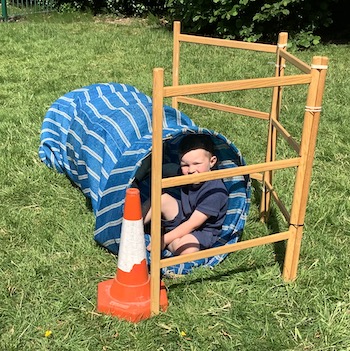
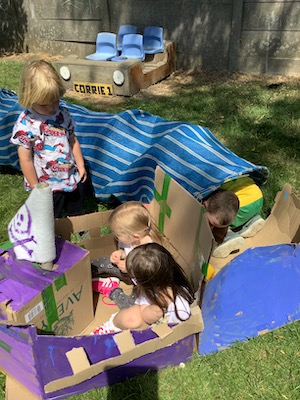
Two girls used a hula hoop to jump through by 'fixing it' to the steps. (This followed on from a game we played where I held up a hoop for the children to jump through a while ago).
It was interesting that adding the two small hoops made it into "a door" in the children' eyes:
Alfie was very keen to create his own route and explain how to move through it:
There is lots to go at with this activity and I think it gives scope to keep revising, thinking about space and helping children gain confidence using directional/positional language.

